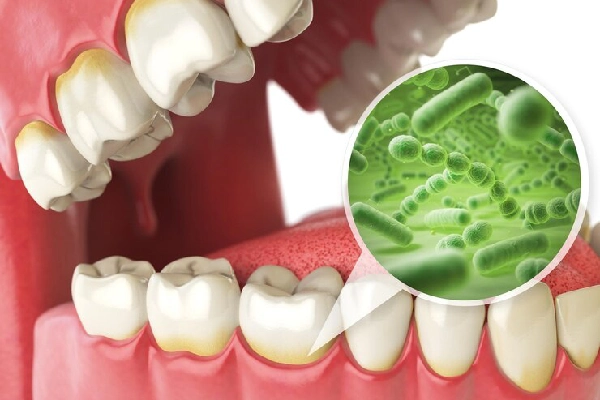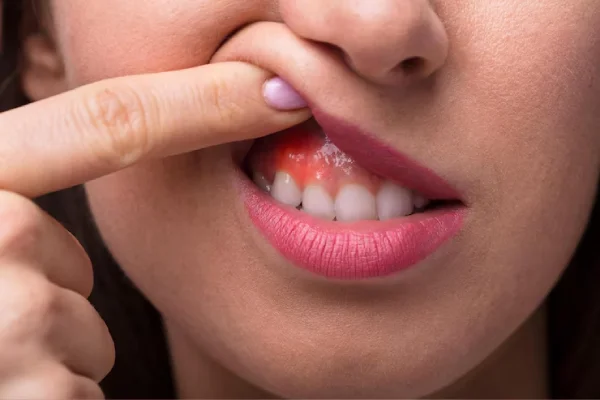In this blog, we’ll explore what periodontal disease is, its warning signs, and most importantly—how you can prevent it from affecting your life.
Periodontal disease is a chronic gum infection caused by harmful bacteria in plaque. Gingivitis is the initial stage, in which the gums become inflamed and may bleed when you brush or floss. It can develop into periodontitis, which damages the bones supporting your teeth and can result in tooth loss, if treatment is not received.
At Modenta, we see many patients who ignore early signs of gum issues, not realizing how serious the condition can become. The good news? The majority of periodontal disease can be avoided and treated with early detection and good dental hygiene.

It's important to recognize the early symptoms of periodontal disease so that you can seek timely treatment. Watch for:
Red, swollen, or tender gums
Bleeding while brushing or flossing
Receding gums (gums pulling away from teeth)
Persistent bad breath
Loose or shifting teeth
Pain while chewing
If you notice one or more of these symptoms, it’s time to schedule a dental checkup with Modenta. The impact of early intervention can be significant.

The primary cause of periodontal disease is plaque buildup, a sticky film of bacteria that forms on your teeth. Poor oral hygiene allows plaque to harden into tartar, which irritates the gums and creates space for more bacteria to thrive.
Other risk factors include:
Smoking or chewing tobacco
Poor nutrition and vitamin deficiencies
Chronic conditions like diabetes
Genetic predisposition
Stress weakens the body's defenses against illnesses.
hormonal shifts (during menopause or pregnancy, for example)
At Modenta, we emphasize a comprehensive approach to care—targeting not just the symptoms but the root causes as well.
The first measures in preventing gum disease are maintaining a healthy lifestyle and practicing consistent dental hygiene. Here’s what you can do:
Brush your teeth at least twice a day using a soft-bristled toothbrush and fluoride toothpaste. To remove food particles and plaque from between teeth and under the gum line, don't forget to floss daily.
A decent mouthwash can help prevent early-stage gingivitis and reduce oral bacteria. Seek out goods that have earned the ADA Seal of Acceptance.
Professional cleanings are essential to remove tartar that brushing alone can’t handle. Plan to visit Modenta for examinations every six months, or more frequently if your risk is higher.

Smoking is one of the primary risk factors for periodontal disease. Quitting improves gum health and overall well-being.
Include plenty of fresh fruits and vegetables in your diet, especially those high in Vitamin C, which helps maintain strong, healthy gums.
If you have diabetes or any other chronic condition, work with your doctor to manage it effectively. Keeping your body healthy helps your gums stay healthy too.
If you’re already showing signs of periodontal disease, don’t worry—Modenta offers several treatment options:
Scaling and Root Planing: A thorough cleaning technique that smooths the dental roots and gets rid of tartar under the gum line.
Antibiotic Therapy: The use of localized antibiotics to eradicate microorganisms that cause infections.
Laser Therapy: One minimally invasive way to treat infected gums and encourage recovery is with laser therapy.
Surgical Procedures: To restore gum health and replace damaged tissues, gum surgery may be required in more severe situations.
Our experienced team at Modenta will create a personalized treatment plan based on your specific needs.
Just as much attention should be given to your gums as to your teeth. Periodontal disease is a serious but preventable condition that can impact not only your oral health but your overall well-being. At Modenta, we prioritize preventive care, patient education, and personalized treatment plans to ensure your gums stay healthy for life. Whether you need routine cleanings or advanced periodontal therapy, we can help. Book an appointment with Modenta today and take the first step toward stronger, healthier gums and a confident, infection-free smile.